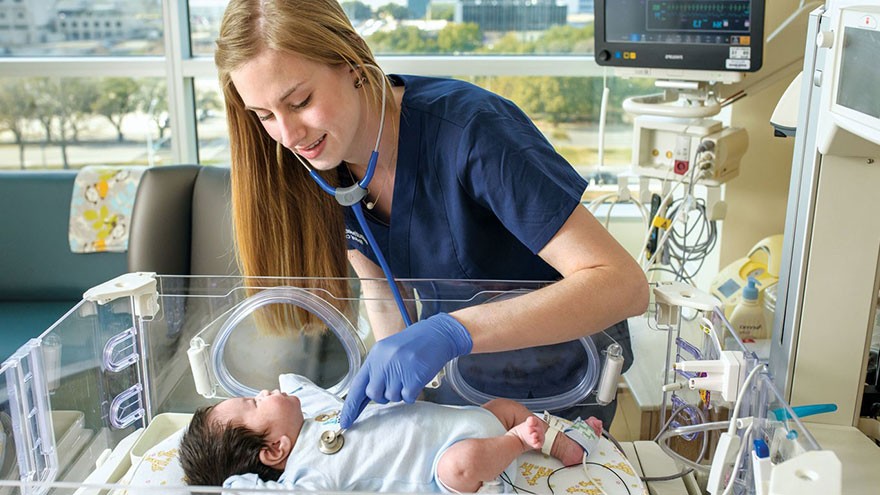What Is the Purpose of the NICU?
After waiting nine months to hold your newborn in your arms, it can be upsetting to hear that he requires specialized care and must stay in the neonatal intensive care unit, often referred to as “NICU.” Parents may feel overwhelmed, frightened and confused by what is often unexpected news after a long or difficult delivery.
Understanding the purpose of the NICU can provide a sense of comfort and confidence in the medical care newborns receive there.

What Is NICU?
The NICU is a unit in the hospital that focuses on caring for ill or premature newborns. For instance, an infant may be taken to the NICU because of a weak heartbeat, respiratory disease, genetic abnormality, an infection or a neurological disorder.
Sometimes newborns are brought to the NICU because they need special tests. According to KidsHealth.org, infants requiring this special care are usually admitted within 24 hours after delivery. Physicians called neonatologists monitor, diagnose and treat sick newborns.
Depending on the severity of an infant’s illness, he may spend days, weeks or longer in the NICU. But medical professionals work to familiarize parents with the environment and assure them that their infants are receiving the best care possible.
Equipment
The NICU has different kinds of technology to help your baby. One piece of equipment in is a radiant warmer, which keeps infants at the perfect temperature while allowing physicians easy access from all sides.
Another item used to keep premature infants warm is an incubator. Incubators maintain a newborn’s temperature in a moist, clean environment, where he is protected from noise, drafts, infection and overhandling.
Other technology includes pulse oximeters, which monitor oxygen in the blood; physiologic monitors, which track the heartbeat; ventilators, which help infants breathe if they are too weak; and phototherapy lights, which help with jaundice (yellowing of the skin).
Procedures
In a neonatal intensive care unit, medical professionals may perform certain procedures on critically ill newborns. According to the Memorial Hospital of South Bend, blood tests may be necessary to help doctors find out about the levels of chemicals and components of an infant’s blood. Sometimes X-rays with minimal radiation are necessary.
Another NICU procedure is the insertion of a PICC (peripherally inserted central catheter) line if your newborn needs IV fluids for an extended period of time. Occasionally, blood transfusions are necessary.
Accomodating Families
The NICU is usually a welcoming place for families. Highly trained staff members work with parents to instill confidence in caring for their newborns after discharge. Many hospitals allow parents to stay nearby.
For example, the NICU at Mass General Hospital in Boston allows parents in the unit at any time and has a dedicated space where parents can remain at their infant’s bedside overnight. This way mothers can still be involved in their newborns’ feedings.
A baby’s sucking and swallowing ability, as well as breath system, may be too immature for direct feeding, but pumped breast milk, an important source of nutrition, can still be given to a preemie through a tube.
In many NICUs, social workers are available to help parents with emotional needs, and information on support groups is available as well.
You Might Also Like : How to Stock a Changing Table
Check out the video version of this article on YouTube

